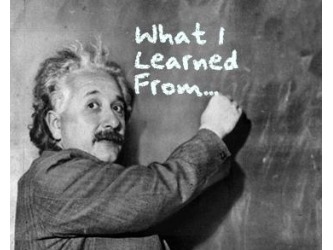...the social context of your English classroom is the most powerful and important variable you can experiment with...
-Zemelman & Daniels
Zemelman & Daniels Philosophy on Writing.
On this page you will find Zemelman's & Daniel's philosophy on writing. Their ideas are innovative and important for those who believe good social community in a classroom is required. The ideas come from their book A Community of Writers.
Writing alone can often leave one lost, "stuck", or frustrated.
Maybe directions are not clear.
Maybe you have been brainstorming but cannot get anywhere...
This is why groups benefit student's writing abilities.
However, if groups are not established in a healthy setting, student's sharing their writing can still be scary. Asking students to share means asking students to be vulnerable -
it means students must open up themselves to others in the classroom.
Moreover, putting thoughts in writing is a "commitment...Asking for engaged, thoughtful, inventive writing in any classroom is thus asking students to take risks, to contribute to their own initiative, and to take responsibility -
all difficult enough for teenagers ordinarily, and especially challenging when the prevailing social setting makes one feel vulnerable" (Zemelman & Daniels).
"what students learn about writing depends more than anything else on the context in which they write"
Group Dynamics: The Beginnings
Groups are formed to complete tasks. But what type of activities happen in groups when a teacher is not around?
Task & Maintenance Activity
1. "on-task" - task activities are activities that groups do that are specific to the purpose of the group (52)
2. "off-task" or "maintenance" - anything that is not task specific (eating, talking, moving, discussing
group roles). These "off-tasks" make the "on tasks" possible (53).
Our classrooms need to have a balance of both types of activity. Students need to be able to interact with each other as people/friends and not just as work laborers. If not allowed to interact with other students normally, it may hinder students' desire to share their writing in class. Thus, Zemelman says that by not allowing this type of "off-task" interaction off teachers will cut students off "from the larger community, a vital source of ideas, support, and feedback. But the special sort of trust necessary for sharing serious writing is developed in important ways through maintenance activity - personal talk, laughter, learning about one another's backgrounds and experiences" (53).
Zemelman's Stages of Group Development
-"Individual members need to express their presence and make their needs known" (59)
This is inhibited if teachers stop students from socializing all the time, if the teacher always
needs to be right, and if the teacher tries to avoid conflict. -"Conflict is an inevitable stage of development without which a group can never become fully mature" (60)
Teacher Tips: 1. Don't "smother...or gloss over conflict. It is needed (61)
2. Don't change groups too soon - students need to establish who they are in the group 3. Teach students to discuss things that are bothering them
4. Remind students they do not need to always take advice or criticism from others
-"Groups need six key elements" (62-66)
1. Expectations - positive expectations for their own work and relationships in the group
2. Norms - expectation form the norms, both informal and formal
3. Leadership - effective groups share leadership roles
4. Friendship - there is more accountability in groups if students have a distinct identity and
relationship within the group
5. Conflict resolution - groups need conflict in order to move ahead
6. Communication - these groups are formed out of the necessity to develop language and
improve writing, which can only be accomplished through such means.
Keeping in mind these stages of development and the ingredients necessary to create a cohesive group, teachers can develop curriculum that will lend itself well to group dynamics. Even if you do not always use group activities these tips will undoubtedly aid in a teacher's ability to create a respectful classroom environment.
It may cause a headache for a teacher if he or she is always trying to avoid conflict. Without conflict one cannot change. Conflict means that one's previous understanding is clashing with a new understanding, and it is through that process that real learning begins.
This is an encouragement to all teachers, old and new, that are discouraged by conflict in their classroom. Conflict is healthy. It means that growth is about to happen. It means that the water is about to boil, creating the perfect setting for something to cook - a place where things will be made new.






